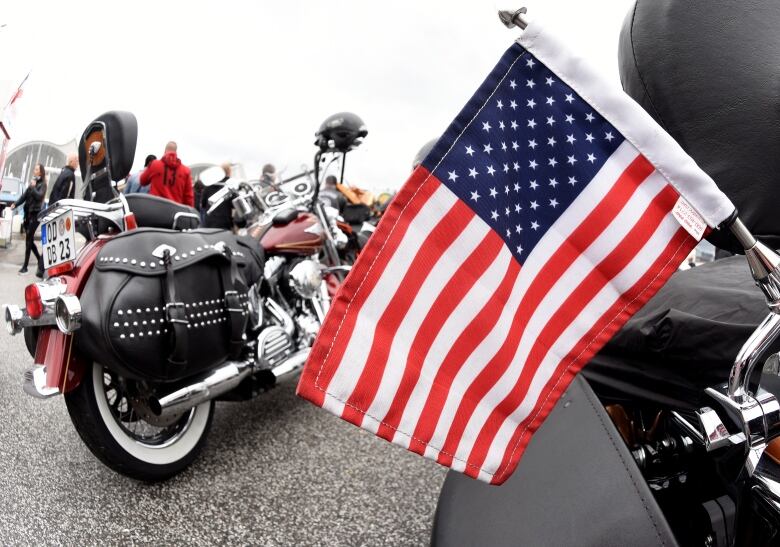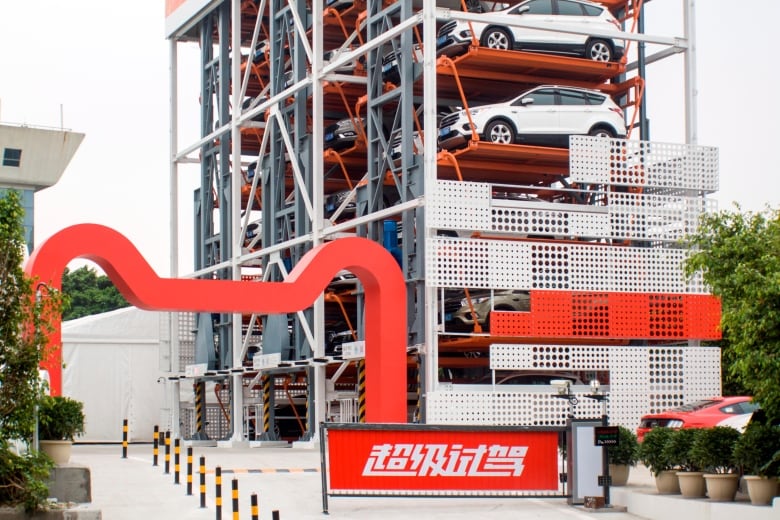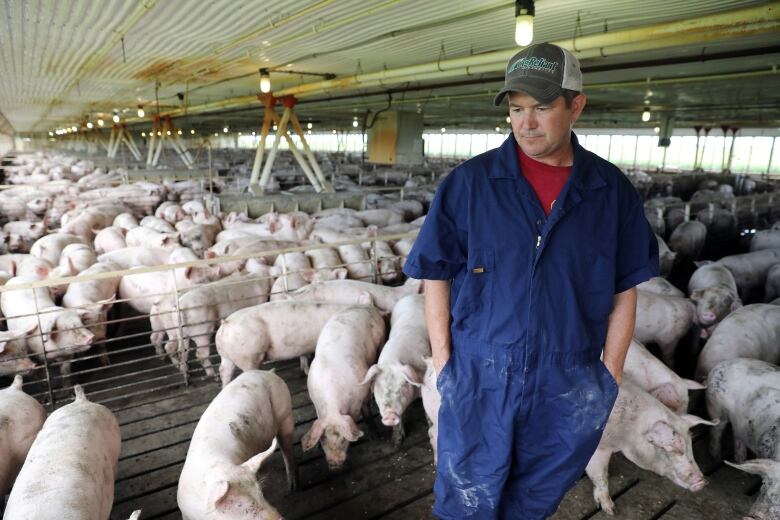U.S. carmakers could be next victims of Trump's 'easy to win' trade war: Don Pittis
American industry players line up to voice pro-trade views before Washington hearings

Even if the Trump administration won't listen to Canadian Foreign Affairs MinisterChrystia Freelandonthe advantages of the North American Free Trade Agreement,maybe screams of protest from their own industry groups will wake them up to the dangers of protectionism.
The issue on the table at today's hearings in Washingtonis whether imported cars are a national security threat and therefore worthy of U.S. President Donald Trump's proposed 25 per centimport duty on cars and auto parts.
As you would expect, representatives of Canada and Mexico were on the agenda to speak.
Butsome of the loudest voices are coming from U.S. businesses terrified of becoming the next victims of Trump's infamous comment from earlier this year: "Trade wars are good, and easy to win."
When a country (USA) is losing many billions of dollars on trade with virtually every country it does business with, trade wars are good, and easy to win. Example, when we are down $100 billion with a certain country and they get cute, dont trade anymore-we win big. Its easy!
—@realDonaldTrumpNot so easy
Under the bannerof Alliance of Automotive Manufacturers, the country's auto-sector members penned an open missive "A letter to President Trump from the auto sector"in advance of the hearings.
"We have come together as a united U.S. auto industry domestic and international automobile manufacturers, suppliers, dealers and auto care businesses to urge your administration to achieve fair trade through policies that won't jeopardize American jobs, our economy or U.S. technological leadership," read therare joint statement.
As proponents of the protectionist plan insist, the intent of tariffs, such as those already in place on steel and aluminum,is tobenefitAmericanindustries and workers.
But the recent round of steel and aluminum tariffs imposed by the Trump administration haven't exactly worked out as advertised. Tariffs on uraniumthreatenedjust yesterdaycould have similar effects.
Like many of Trump's schemes, from the Mexican wall to the recent closed-door talks with Russia's Vladimir Putin,it's as if the whole protectionist process hasnot been properly thoughtthrough.

To its proponents, tariffs scare off foreign competition and allow domestic producers of those same goods to prosper. But there are flaws in the argument.
One flaw is that while individualproducers of U.S. steel, aluminum or uranium may benefit as the tariffs push the price of foreign goods up, those benefits are dwarfed by the costs imposed on other companies or industries facing shortages or increased prices on essential ingredients.
Domestic U.S. manufacturers don't produce enough to replace the now-tariffed imports and their costs are much higher.
Firms that take cheaper foreign steel and transform it into value-added productswith their own sophisticated technologyhave been hurt. Other examples include layoffs by a U.S. nail manufacturerand theU.S. beer industry hit by the rising costs of aluminum cans.
Hitting back
There's the old joke where the kid on the playground tells his teacher that "it all started when he hit me back."
The secondflaw in Trump's protectionist strategyis that when he hits his trade partners, he seems to think they are just going to stand there and take it.
Europe didn't;they hit back.And that's why companies like Harley-Davidson have been forced to move jobs abroad.
China didn't. And that's why one U.S. senator at congressional hearings this week complained American soy and corn farmers are earning less that it costs them to grow their crops as customerslook elsewhere for their exports.
Despite falling feed costs, U.S. pork producers are also considering moving production outside of the country.

In the case of the auto sector, there are special considerations, especially in the highly integrated North Americanindustry, where parts crossborders as if they weren't even there.
TheU.S. industry groupis clearly worried about the impact of a tariff plan that would tear those trade patterns apart, forcing members to find new domestic suppliers and raise prices to cover the additional costs.
"Raising tariffs on autos and auto parts would be a massive tax on consumers who buy or service their vehicles whether imported or domestically produced," their letter said.
Boycott danger
"These higher costs will inevitably lead to declining sales and the loss of American jobs, as well as increasing vehicle service and repair costs that may result in consumers delaying critical vehicle maintenance."
Of course that's not all.
The global footprint of the U.S. auto industry is huge. And while few cars from China make it into the United States, companies like Ford and General Motors do manufacture and sell their brands in China.
A new study conducted forthe Financial Times has put some new details behind that threat, finding that "54 per cent of 2,000 respondents in 300 cities across China would 'probably'or 'definitely'stop buying U.S.-branded goods" in the event of a trade war.
The U.S. Chamber of Commerce has also spoken out against the tariffs, and the International Monetary Fund has said a growing trade war will cost the global economy hundreds of billions of dollars.

According to industryexperts like FlavioVolpe, a spokesperson for Canada's auto-parts makers, even if the North American sector could eventually adjust to new sources and new supply lines, the threatened tariffs could draga whole swath of American car-producing statesinto recession.
"A 25 per cent tariff on cars from Canada into the U.S. and then presumably a counter-tariffon cars from the U.S. into Canada would grind the industry to a halt," he said.
Follow Don on Twitter:@don_pittis












_(720p).jpg)


 OFFICIAL HD MUSIC VIDEO.jpg)
.jpg)



























































































